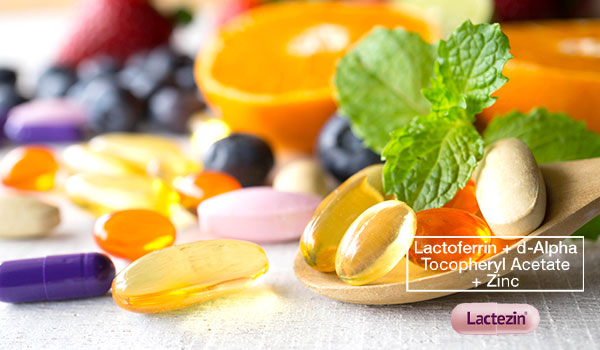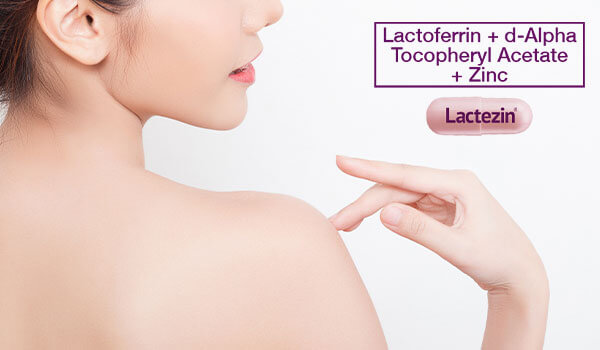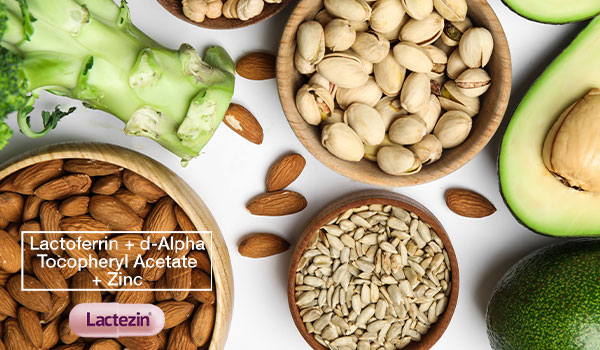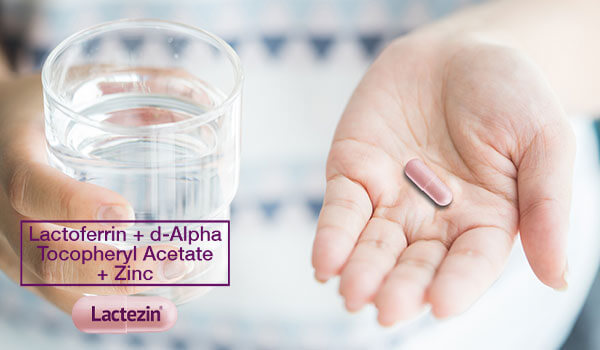The Role of Zinc in Skin Health and the Immune System

Zinc is a popular chemical element and the human body requires a very small amount of this essential mineral so it can perform many vital functions. Continue reading below to find out what it is and its role in skin health and the immune system.
What is Zinc and what are its benefits?
Zinc is an “essential trace element” that the human body cannot naturally produce or store. For this reason, it must be consumed regularly through your daily diet. Most importantly, it is known for its huge role in boosting the immune system. Any deficiency of this nutrient can make one more susceptible to illnesses.
Take a look at all its benefits below:
-
Regulates immune function
According to studies, the human body requires zinc to stimulate T lymphocytes, also known as T-Cells. It helps the body by controlling and regulating immune responses and by attacking infected or cancerous cells.New research has even suggested that zinc helps control infections by mildly stopping the immune response to prevent it from inflammation that can spiral out of control and turn fatal.
-
Promotes good skin health
Acne is caused by clogged pores, bacteria, and inflammation. Individuals who are plagued with acne may find zinc effective in reducing inflammation and restricting the further growth of P. acnes bacteria. It can also reduce oxidative stress and inflammatory proteins in the body.Zinc is also frequently used in hospitals to serve as a treatment for burns and other skin injuries. This is because it plays a critical role in collagen synthesis, immune function, and inflammatory response which is necessary for proper healing.
-
Reduces the risk of some age-related diseases
Pneumonia, infection, and age-related macular degeneration (AMD) are some of the age-related diseases that zinc may help reduce the risk of. It reduces oxidative stress and increases immune response by triggering the activity of T-Cells. Adults who supplement with zinc experience an enhanced influenza vaccination response, reduced risk of pneumonia, and heightened mental performance.
Where can I find Zinc?
To ensure that you’re meeting your daily zinc requirements, incorporate the following foods into your daily diet:
-
Meat
Sufficient amounts of zinc can also be found in red meat, specifically beef, lamb, and pork. A 100g serving of raw ground beef contains 4.8mg of zinc. That is 44% of the daily value. -
Shellfish
Shellfish like crab, mussels, and shrimp are all good sources of zinc. But oysters, in particular, contain high amounts. 6 medium oysters contain 32mg or 291% of the daily value. -
Seeds and Legumes
If you’re following a strict vegan or vegetarian diet, then seeds and legumes are an excellent option for zinc. Squash, pumpkin, and sesame seeds carry significant amounts, while hemp seeds contain 31% and 43% of the recommended daily intake for men and women, respectively.Meanwhile, legumes like chickpeas, lentils, and beans contain high amounts of zinc. However, they also contain phytates which inhibit its absorption. Thankfully, preparation methods like heating, sprouting, soaking, or fermenting can assist the body easily absorb it better.
-
Dairy
In addition to being rich sources of calcium, milk, cheese, and yogurt are also delicious sources of zinc. Milk and cheese in particular consists of high amounts of bioavailable zinc. This means that it can be easily absorbed by the body. -
Dark Chocolate
Remarkably, dark chocolate can be a source of zinc. If you’re a sweet tooth, then it may be tempting to rely on this dessert as your main source of zinc. However, it is a high-calorie food; 100g contains 600 calories. So maybe have a treat or two once in a while. -
OTC Pills
If you want to add zinc to your regular skincare routine, then you need to choose an OTC Acne pill that can handle mild to severe acne. But always check with your dermatologist first to see whether zinc can help your acne from the inside out.You can get your daily dosage of Zinc when you take Lactoferrin + d-Alpha Tocopheryl Acetate + Zinc (Lactezin)! Lactezin contains zinc which is known to have oil-regulating properties to help improve, heal, and rejuvenate skin appearance. It can also help enhance the immune system.
So if you’re looking to improve your skin health and immunity, start your journey with Lactoferrin + d-Alpha Tocopheryl Acetate + Zinc (Lactezin) today and see results in as early as 2 weeks with regular intake.
Lactoferrin + d-Alpha Tocopheryl Acetate + Zinc is the generic name of Lactezin. If symptoms persist, consult your doctor.
If you want to know more about the other ingredients found in Lactezin, click here.
SOURCES:
https://www.healthline.com/nutrition/zinc
https://www.medicalnewstoday.com/articles/263176
https://www.healthline.com/nutrition/best-foods-high-in-zinc
https://www.sciencedaily.com/releases/2013/02/130207131344.htm


